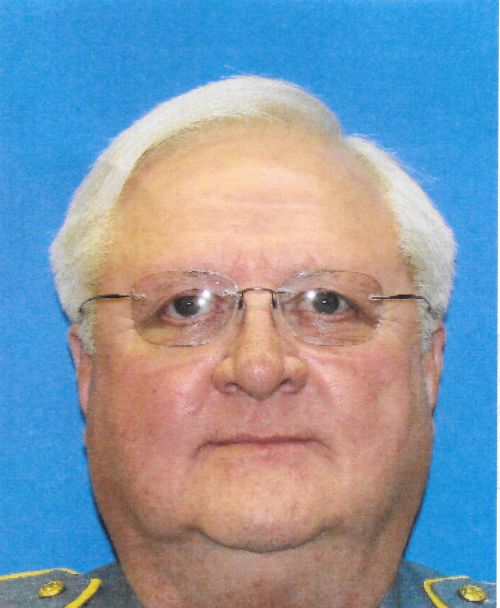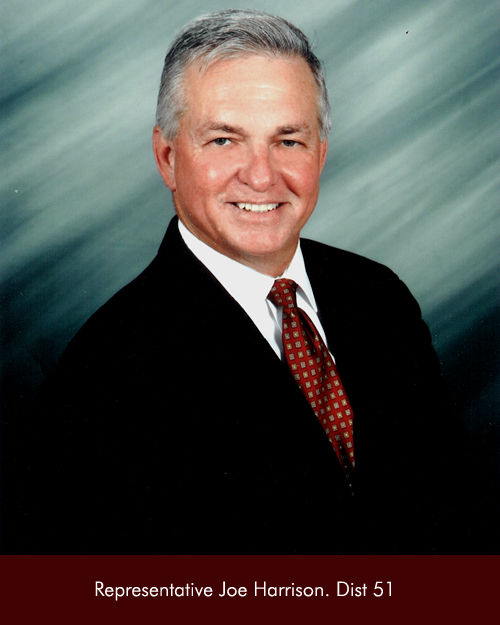
Long-time TPSO deputy dies over Easter weekend
April 22, 2014OUR VIEW: Jail vote vital for Lafourche
April 22, 2014Joe Harrison began his Easter Sunday with the early Mass at St. Joseph the Worker Church in Pierre Part.
As occurs just about any time he is in public, the two-term state representative was approached by people with requests.
Please, they told him, don’t take away the TOPS program, our family needs it.
As occurs just about any time he is thus approached, Harrison offered patient explanation of legislation he has introduced.
His proposed restructuring of Louisiana’s primary college financial aid award – like many of his other bills – has drawn fire and ire. Harrison shrugs it off. The criticism, he avers, results from people applying overly simple thought to complex issues.
“I don’t conform to the status quo and I think that’s what’s wrong with politics today, people don’t stand up for right and wrong anymore,” Harrison says. “They don’t want to be judged, to have people saying they are anti-reform.”
The TOPS-related legislation, HB385, would increase the minimum ACT score for a student to qualify for the assistance be raised from 20 to 22, something Harrison doesn’t regard as unreasonable.
It would also require repayment of the grants by students who don’t meet certain performance standards, and would provide a cap on payment amounts.
The bill was deferred by the House Education Committee, but rather than tell people that and go about his business, Harrison chose to answer their questions and present his defense.
In sum total, the bill’s bite is considerably lesser than the suggested bite, if one listens to radio talk shows or the opinions of pundits. And that is often the case with some of Harrison’s more controversial bills.
Judging by criticisms that arise during legislative sessions, one might think his spare time is spent grinding an axe specifically designed for the slaughter of sacred cows.
Harrison says that while he is not averse to doing so, it is only when the cow’s behavior justifies the action.
For those reasons and others, this legislative session is little different to Harrison from the others he has taken part in since first occupying the District 51 seat in 2008. Things in government that don’t make sense are, to him, fair game, and require change. Bills that seek to correct what he sees as chronic problems in government are revived each session.
He calls them “Lazarus bills.”
It is not his intent, he maintains, to be contrary, although colleagues, sometimes gently and often less diplomatically, try convincing him to move more easily with the political flow.
Harrison offends fellow Republicans as readily as he does Democrats. One of his biggest targets has been Gov. Bobby Jindal, whom he once heartily supported.
“I haven’t talked to the governor in years,” said Harrison, who maintains a refusal to engage in dogmatic or party-driven argument.
“We have allowed this administration to separate us into Republicans and Democrats, just like Washington, rather than thinking for ourselves. “We all need to man up and do the things that are inherently right for our people.”
One of the things Harrison maintains is right for Louisiana’s people is a strong focus on those among them who are aging, and toward that end he is obtaining some traction with his proposal that the state create a separate office for that purpose.
“If we finalize this it will be a first in the nation,” Harrison said. “This is a huge bill. We have to do something. Our seniors are treated like second-class citizens. They contribute their whole lives working for our state and then we don’t show them the respect. For many without families the Council on Aging or the local senior centers is all they have. We took money away from that even though technically that is against the state Constitution. In a lot of the parishes these are not tax-based. The councils on aging depend on state money and a lot of volunteers that come in to help. We cut back Meals on Wheels. We can spend $47,000 per year to house, feed and clothe prisoners but not $2 per day to feed an older person?”
Harrison’s background in finance has aided him in auditing programs and practices in state government, as well as those in private industry like insurance.
And the insurance companies have not escaped his wrath.
“The insurance companies have forced us to do these permits which make it cost 18 percent more to build a house today,” Harrison says. “I vowed that we will reduce it. I came to committee with all of that, I showed them how there were three major storms in the 10-plus years since this was first enforced in 2005. I told them you have given nothing to the consumers but you have increased the cost substantially. Every insurance company in the world was at that meeting. But the members don’t even want to look you in the eye. I told them they are killing us, that the banks are complaining people are throwing their keys on the bankers desks in coastal areas because they can’t afford it and need another place to live. It is going to kill our economy because businesses are already saying we can’t get employees.”
What started out as legislation was morphed down into a study resolution. This session his HB470 would require insurers admitted to write homeowner policies in Louisiana to provide coverage on any residential structure built or to comply with the Uniform Construction Code. It is still pending consideration.
Insurance reform is a horse from which Harrison says he won’t dismount.
It is real horses, however – the kind used for racing – that have been a particular item of interest for Harrison.
Money that is supposed to go to education goes to the horse racing industry, which Harrison finds unconscionable.
“We must have the most highly educated horses in the world,” he has quipped, while discussing legislation he has introduced to take away a guaranteed percentage of all video poker and slot machine money that currently goes to the horse-racing industry, and re-dedicate the overall take to education.
It is how voters were originally sold on the machines, Harrison says, and it’s time for the state to make good on its promise.
HB493 would create the Bet on Louisiana’s Future Fund, providing that gaming money go to TOPS and other education-related coffers.
A constitutional amendment would be required, which means the people would have to vote for the project to be approved. If that vote ever happens, Harrison says it’s a safe bet that they will.
“Out of $890 million per year we get less than $200 million going to education,” Harrison says. “People say it is in the general budget and that the regular budget money goes to education. But most of that in the budget is federal dollars. So let’s talk about where the gaming money is going. It’s going to the horse racing industry.”
Harrison’s outspoken criticism of horse-racing subsidy by the state through gaming has won him little popularity but a lot of enemies, as well as what he has described as death threats.
But his commitment is unwavering.
Where Harrison has compromised is when constituents have convinced him a bill is problematic, if they have presented him with proper argument.
That’s what occurred when his proposal to severely restrict freshwater diversion was opposed by charter fishermen and other coastal residents.
They met with Harrison and convinced him that the legislation, as written, could do more harm than good. Harrison withdrew his bill.
Critics say Harrison could get a lot more accomplished by playing ball – supporting some bills in exchange for gaining support from others – but he says he won’t play the game. The stakes, he maintains, are too high for too many Louisianans.
“Am I upsetting the apple cart?” he says. “No not at all. Because the cart is almost empty of apples. We are killing our people. The hard-working middle class is getting it from the top to the bottom. We give away tax incentives at the top to the big businesses, the people at the bottom have a lot of incentives to help them out. So who is stuck in the middle? The hard-core taxpayer, working day in and day out.”
Harrison can run for one more term before current law limits him out.
And what of a run after that for state Senate?
He would like to. But he doesn’t see it as likely with the current configuration of districts. But whatever he does in the future, Harrison said, will be based on what he sees as good for the people of the state.
“I want my legacy to be that I worked as hard as I can for 12 years and did the right thing for 12 years. It doesn’t matter in terms of those people who try to influence me.”












